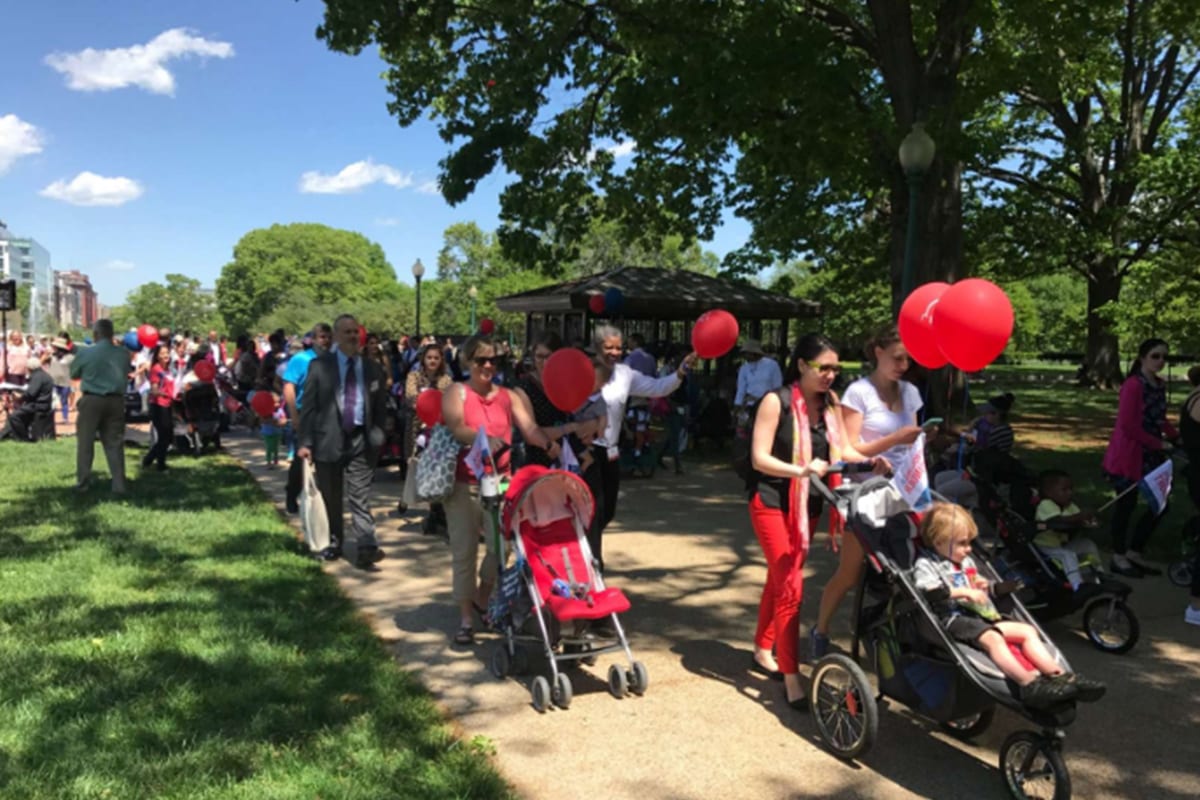It’s a Great Time to Be a Baby
By Julie Mankowski, June 2, 2017

Mackenzie is a working mom in small-town America. She has two young daughters, Lake and Lupine, ages two and four. As babies, Mackenzie’s daughters participated in a local infant learning program, where observant staff diagnosed both girls with speech delays.
To make sure her daughters did not start kindergarten at a disadvantage, Mackenzie enrolled them in a preschool communications class that had special speech services. Thanks to that decision, Mackenzie’s eldest daughter has caught up with her peers; she is now on track to start kindergarten at the right level of speech. The younger daughter is expected to make the same progress.
Now tell this story again, but remove the infant learning program and high-quality preschool class from the equation. You’d have a vastly different ending—one where two children would start school behind their peers, which could have long-lasting effects and possibly keep them from reaching their maximum potential.
Unfortunately, that is a common story when parents do not have access to early childhood services for their babies.
But parents and groups across the country are starting to pay attention, and they want their babies to have the best options, services and opportunities for success.
Mackenzie and her younger daughter recently joined hundreds of other families in Washington, DC, for Strolling Thunder, a march and rally in support of legislation that helps babies, toddlers and their parents. The event was part of ZERO TO THREE’s Think Babies campaign, which aims to remind everyone of the importance of programs that support early development, from high-quality daycare to in-home nurse visits for new parents.
Why is it so important for Mackenzie’s daughters and other kids to have access to these programs so early in life? The rationale lies in neuroscience.
Babies’ brains are forming more than a million neuron connections every second from the moment they are born. These connections lay the foundation for their brain architecture, which helps determine their success as K-12 students and, eventually, adults.
We know that the best time for a human to learn another language is before the age of five for this exact reason. This is why we call babies’ brains “sponges.”
But it is much more than language that the baby’s brain is capable of absorbing; it’s also social skills to build relationships and emotional skills to deal with problems and conflict. When a baby or toddler learns social and emotional skills early on, the skills are more likely to make their way into the brain’s permanent architecture.
Luckily, this fact is becoming more widely understood, and it’s being woven into programs that affect kids and families.
In the advocacy space, for example, groups like ZERO TO THREE are fighting to advance national policies that support and strengthen families and caregivers. and equip parents and professionals with the resources they need to support healthy early development.
In the research world, Penn State University has published briefs about how preschools can involve parents and implement evidence-based practices to support social and emotional development. Both parent engagement and preschool social emotional learning programs can help kids become successful in kindergarten and beyond.
Even Sesame Street is getting involved! They’re working to help parents and childcare providers across the country get babies and young children off to the healthiest start possible. Through the new initiative Sesame Street in Communities, parents and childcare providers can find videos, games, stories and many other resources to help navigate the happy and challenging times in a child’s life—from learning to read and hitting key milestones to divorce and death of a loved one.
All of this progress is key to ensuring our next generation has a healthy start to life, which in turn leads to higher high school and college graduation rates, higher employment rates and even decreased likelihood of being on welfare.
But perhaps more importantly, it leads to healthier, happier families that have the opportunity to thrive.
So back to Mackenzie and her daughters: In thinking of them and the hundreds of other families who came to DC for Strolling Thunder, there are so many reasons to hope for the future. It really is a great time to be a baby.
